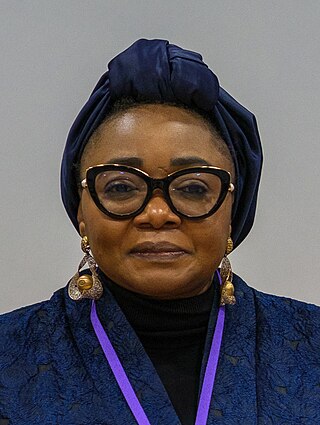Related Research Articles

The governor-general of the Irish Free State was the official representative of the sovereign of the Irish Free State from 1922 to 1936. By convention, the office was largely ceremonial. Nonetheless, it was controversial, as many Irish Nationalists regarded the existence of the office as offensive to republican principles and a symbol of continued British involvement in Irish affairs, despite the Governor-General having no connection to the British Government after 1931. For this reason, the office's role was diminished over time by the Irish Government.
The Executive Council was the cabinet and de facto executive branch of government of the 1922–1937 Irish Free State. Formally, executive power was vested in the Governor-General on behalf of the King. In practice, however, it was the Council that governed, since the Governor-General was bound to act on its advice. The Executive Council included a prime minister called the President of the Executive Council and a deputy prime minister called the Vice-President. A member of the Council was called an executive minister, as distinct from an extern minister who had charge of a department without being in the Council.
The Government of South Australia, also referred to as the South Australian Government or the SA Government, is the executive branch of the state of South Australia. It is modelled on the Westminster system, meaning that the highest ranking members of the executive are drawn from an elected state parliament. Specifically the party or coalition which holds a majority of the House of Assembly.

Nasarawa State is a state in the North Central region of Nigeria, bordered to the east by the states of Taraba and Plateau, to the north by Kaduna State, to the south by the states of Benue and Kogi, and to the west by the Federal Capital Territory. Named for the historic Nasarawa Emirate, the state was formed from the west of Plateau State on 1 October 1996. The state has thirteen local government areas and its capital is Lafia, located in the east of the state, while a key economic centre of the state is the Karu Urban Area—suburbs of Abuja—along the western border with the FCT.
The Government of Sudan is the federal provisional government created by the Constitution of Sudan having executive, parliamentary, and the judicial branches. Previously, a president was head of state, head of government, and commander-in-chief of the Sudanese Armed Forces in a de jure multi-party system. Legislative power was officially vested in both the government and in the two houses – the National Assembly (lower) and the Council of States (upper) – of the bicameral National Legislature. The judiciary is independent and obtained by the Constitutional Court. However, following the Second Sudanese Civil War and the still ongoing genocide in Darfur, Sudan was widely recognized as a totalitarian state where all effective political power was held by President Omar al-Bashir and his National Congress Party (NCP). However, al-Bashir and the NCP were ousted in a military coup on April 11, 2019. The government of Sudan was then led by the Transitional Military Council (TMC). On 20 August 2019, the TMC dissolved giving its authority over to the Transitional Sovereignty Council, who were planned to govern for 39 months until 2022, in the process of transitioning to democracy. However, the Sovereignty Council and the Sudanese government were dissolved in October 2021.

The Cabinet are individuals of Barbados which execute the duties of the Government of Barbados. Under a Parliamentary republic, these powers are vested nominally by the President of Barbados, but are exercised in practice by a Cabinet of Ministers, presided over by the Prime Minister of Barbados. The Prime Minister is formally appointed by the President: the President must appoint, as Prime Minister, someone who can control a majority of votes in the House of Assembly. In practice, this is normally the leader of the largest political party or coalition in the house. When there is no clear majority, the president assumers the role of arbitrator and opens negotiations with the leaders of the various political parties, in the hope of finding someone whom a majority will accept as Prime Minister. In the event of that failing to take place, the President must dissolve the House of Assembly and call an early election.

The Government of Gujarat, also known as GujaratGovernment, is the supreme governing authority of the Indian state of Gujarat and its 33 districts. It consists of an executive of the legislators appointed by the Governor of Gujarat, a judiciary and of a publicly elected legislative body.

Nasarawa State University is located in Keffi Nigeria. Nassarawa State University, Keffi (NSUK), is a tertiary institution which was created to encourage the advancement of learning in the state and its neighbouring environment.
The Executive Council, also known as the Governor's Cabinet is the highest administrative decision-making authority in Rivers State. It is part of the executive branch which is the most influential branch of the state government. It comprises the governor, deputy governor, Secretary to the State Government, chief of staff, commissioners and special advisers. All of its members excluding the Deputy Governor are appointed by the Governor of Rivers State and confirmed by the House of the Assembly of the state.
The Executive Council of Abia State (informally and more commonly, the Cabinet of Abia State) is the highest formal governmental body that plays important roles in the Government of Abia State headed by the Governor of Abia State. It consists of the deputy governor, Secretary to the State Government, chief of staff, commissioners who preside over ministerial departments, and the governor's special aides. Appointment into these positions except the position of deputy governor is exercised by the governor on approval and confirmation by the Abia State House of Assembly.
Abdullahi Audu Sule is a Nigerian engineer, businessman and politician who has served as governor of Nasarawa State since 2019. He was elected in the 2019 Governorship election under the platform of the All Progressives Congress (APC).

Mohammed Hassan Abdullahi is a Nigerian lawyer and politician. He was appointed Nigeria's Minister of Environment by President Muhammadu Buhari in April 2022, having been redeployed from the Ministry of Science and Technology where he was Minister of State. He served in his new position until May 2023. He was Attorney General and Commissioner for Justice for Nasarawa State and the Secretary to the State Government (SSG). He is a solicitor and advocate of the Supreme Court of Nigeria.

Imaan Sulaiman-Ibrahim, is a Nigerian politician and businesswoman. She was the director-general of National Agency for the Prohibition of Trafficking in Persons, NAPTIP from 1 December 2020 till 27 May 2021, when the Nigerian President, Muhammadu Buhari announced a swap and she was redeployed as the Honourable Federal Commissioner of the National Commission for Refugees, Migrants, and Internally Displaced Persons.
The 2019 Nasarawa State gubernatorial election occurred on March 9, 2019, the APC nominee Abdullahi Sule won the election, defeating David Ombugadu of the PDP.
The 2023 Nasarawa State gubernatorial election will take place on 18 March 2023, to elect the Governor of Nasarawa State, concurrent with elections to the Nasarawa State House of Assembly as well as twenty-seven other gubernatorial elections and elections to all other state houses of assembly. The election—which was postponed from its original 11 March date—will be held three weeks after the presidential election and National Assembly elections. Incumbent APC Governor Abdullahi Sule is eligible to run for re-election and has been renominated by his party.
In the Federal Republic of Nigeria, state executive councils are the highest formal governmental body in state governments headed by governors.
The 2011 Nigerian House of Representatives elections in Nasarawa State was held on April 9, 2011, to elect members of the House of Representatives to represent Nasarawa State, Nigeria.
The 2015 Nigerian House of Representatives elections in Nasarawa State was held on March 28, 2015, to elect members of the House of Representatives to represent Nasarawa State, Nigeria.
References
- ↑ "Nasarawa State of Nigeria". www.nasarawastate.gov.ng. Archived from the original on 2015-11-21.
- ↑ "Sule dissolves cabinet in Nasarawa". The Guardian . 30 August 2021. Retrieved 1 September 2021.